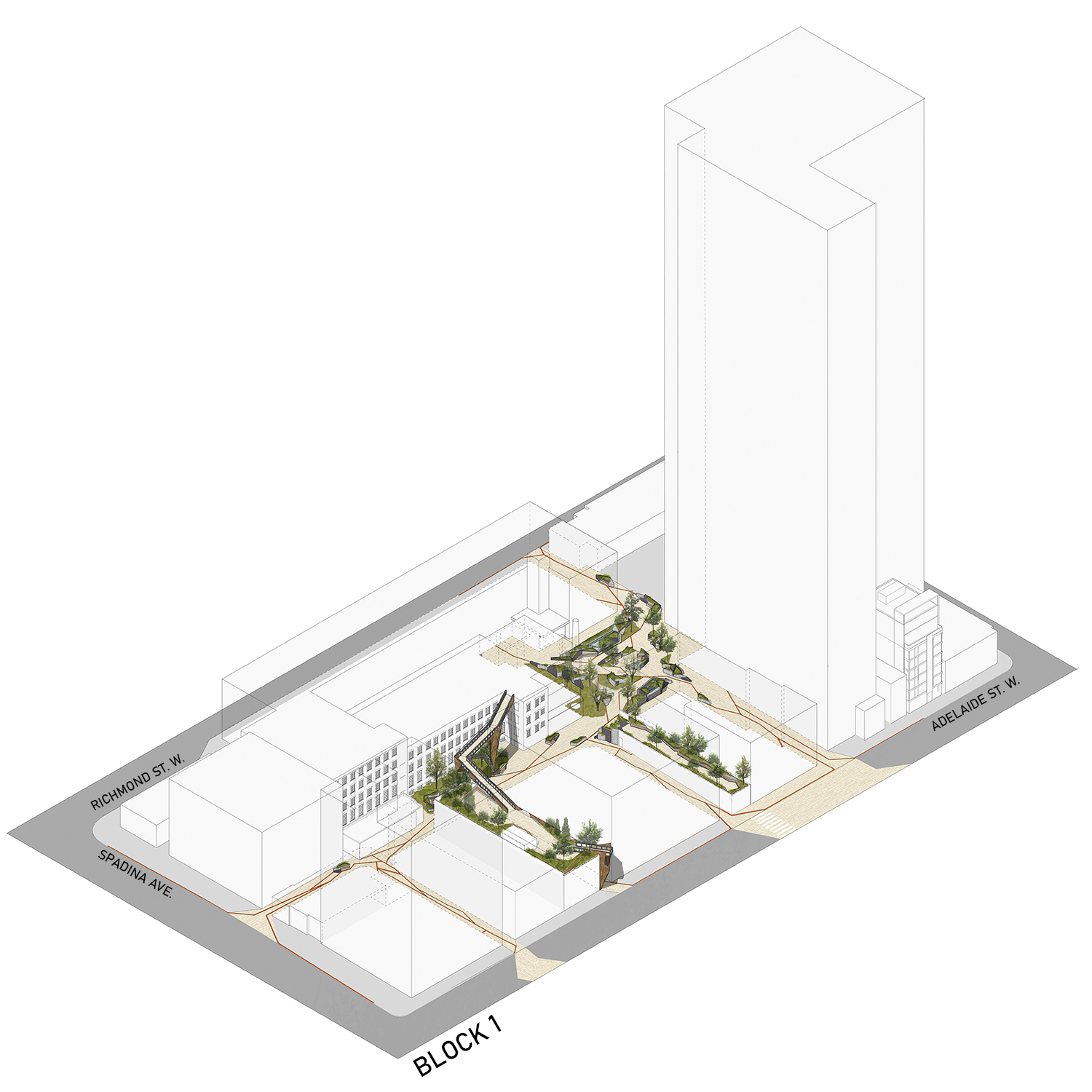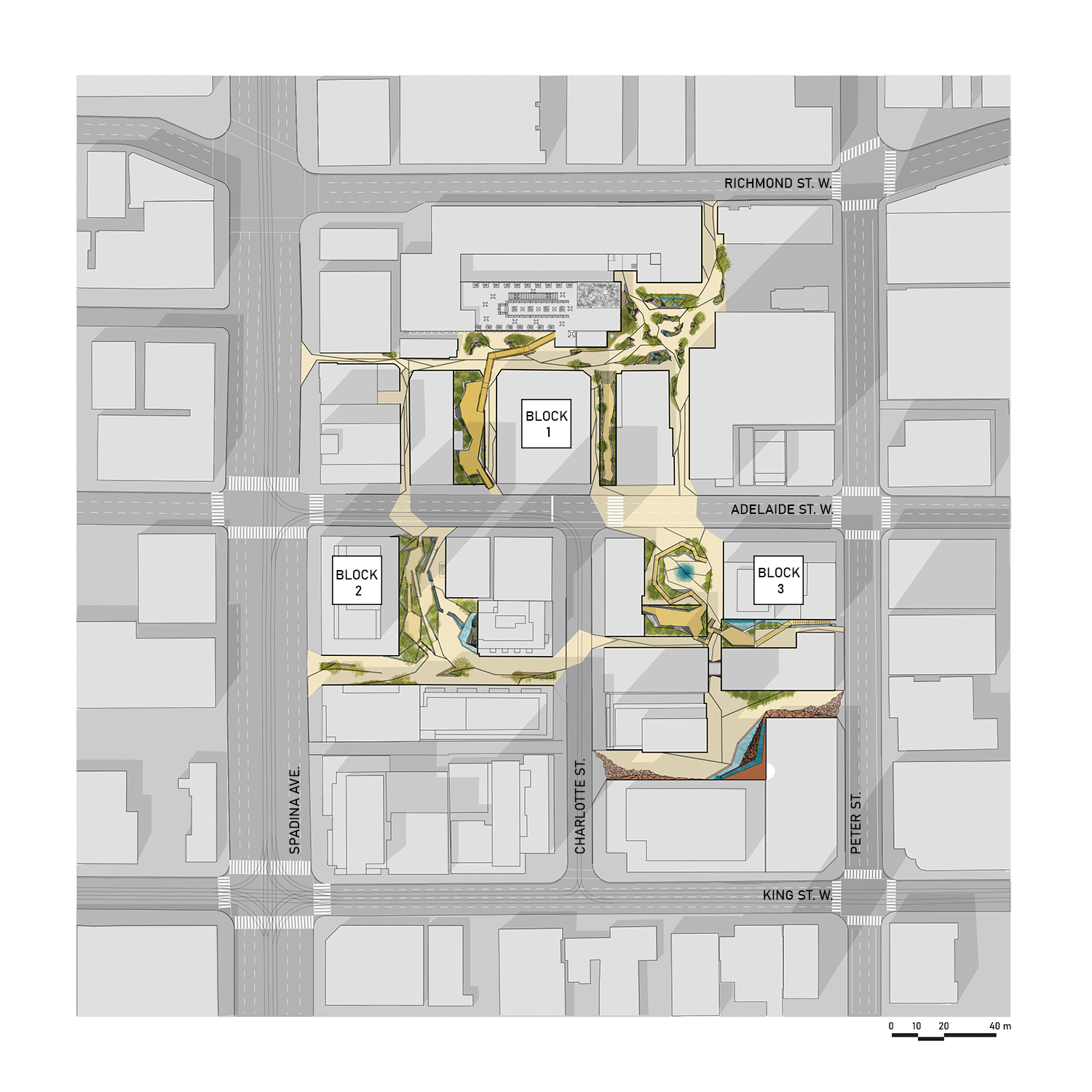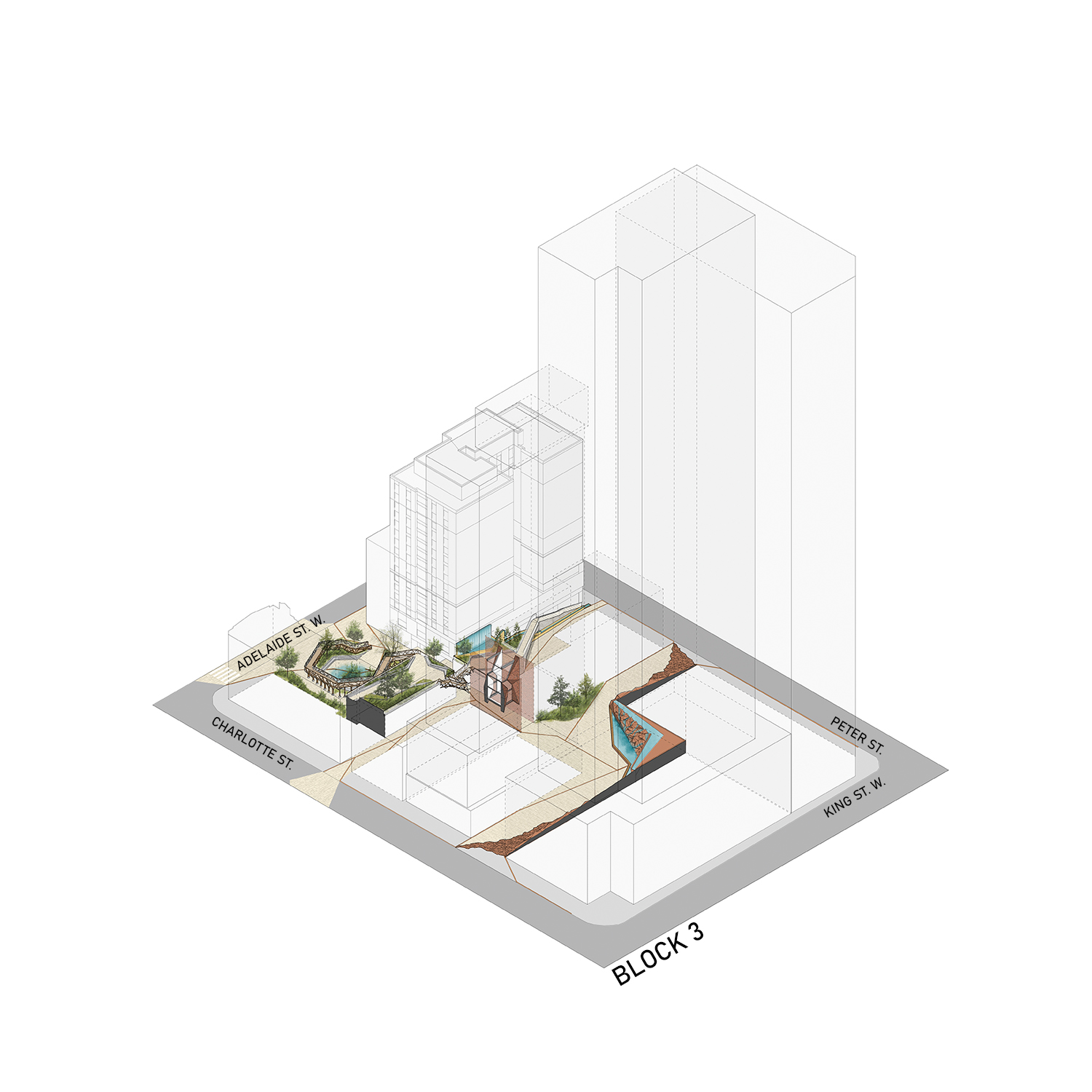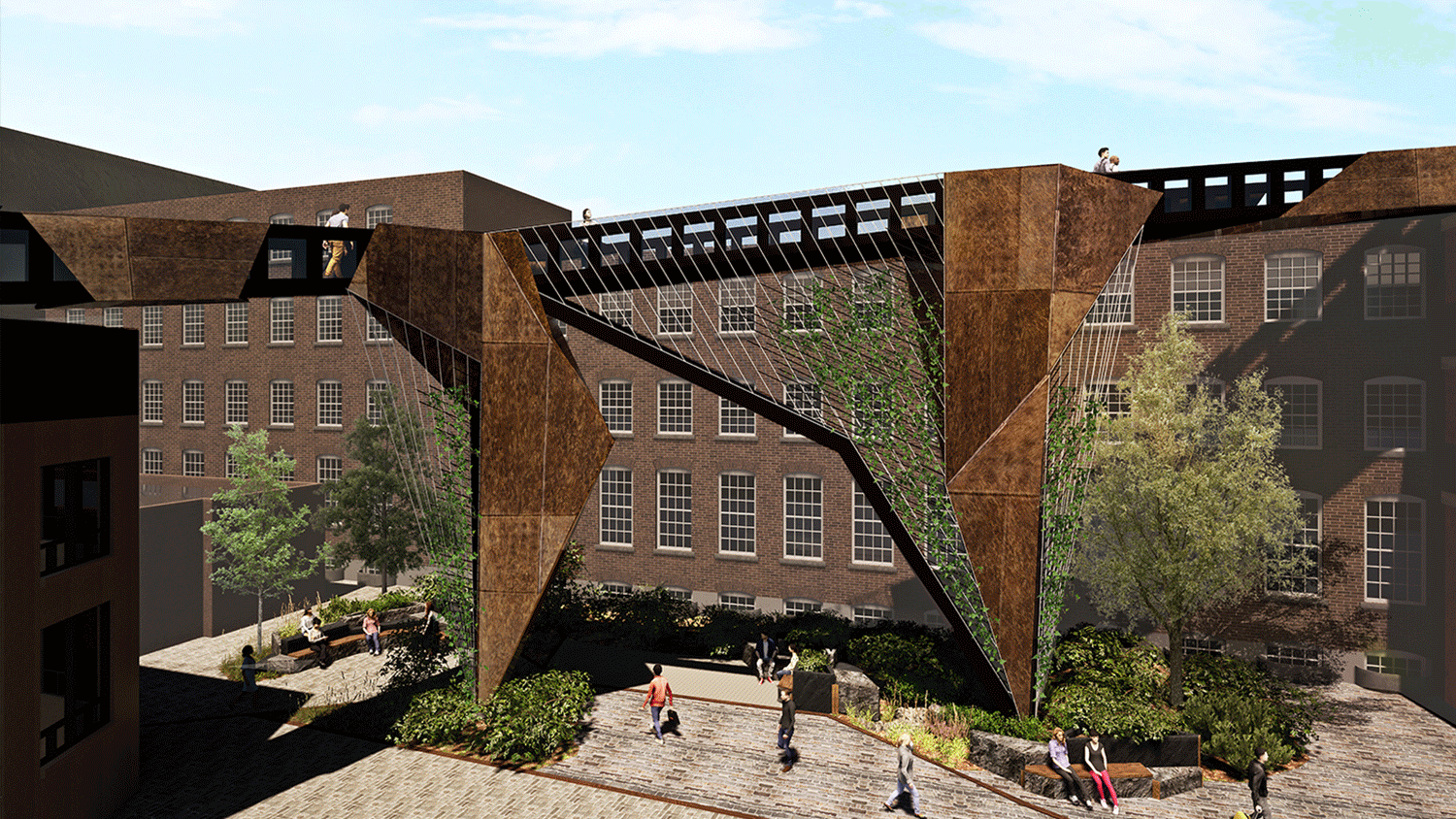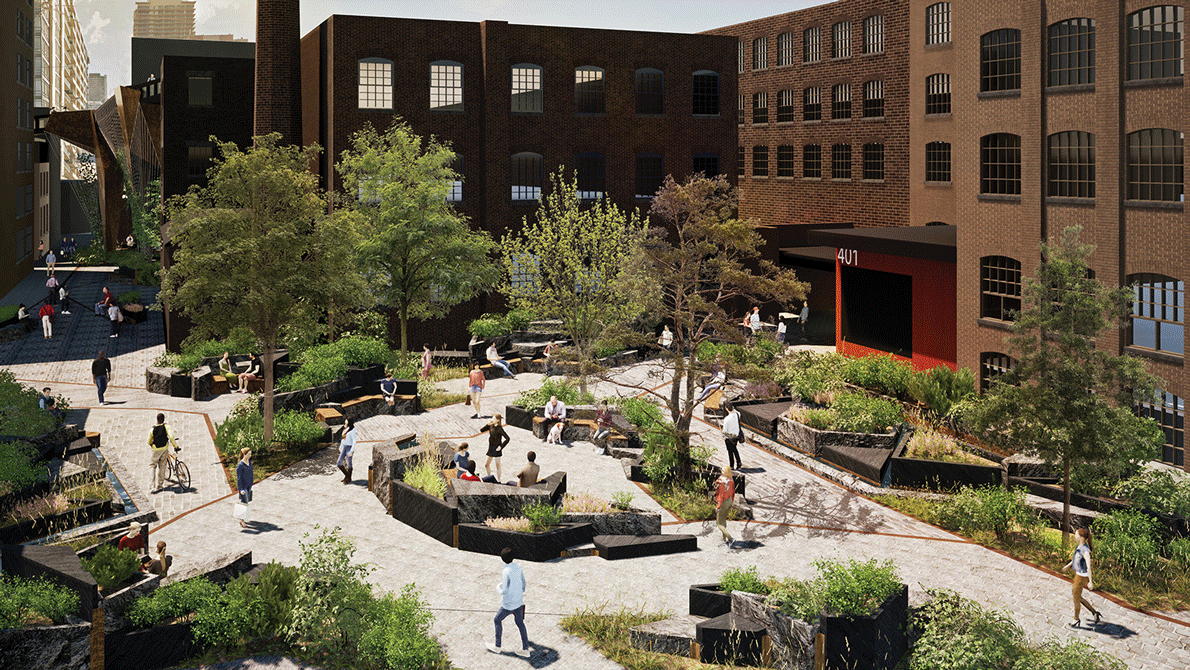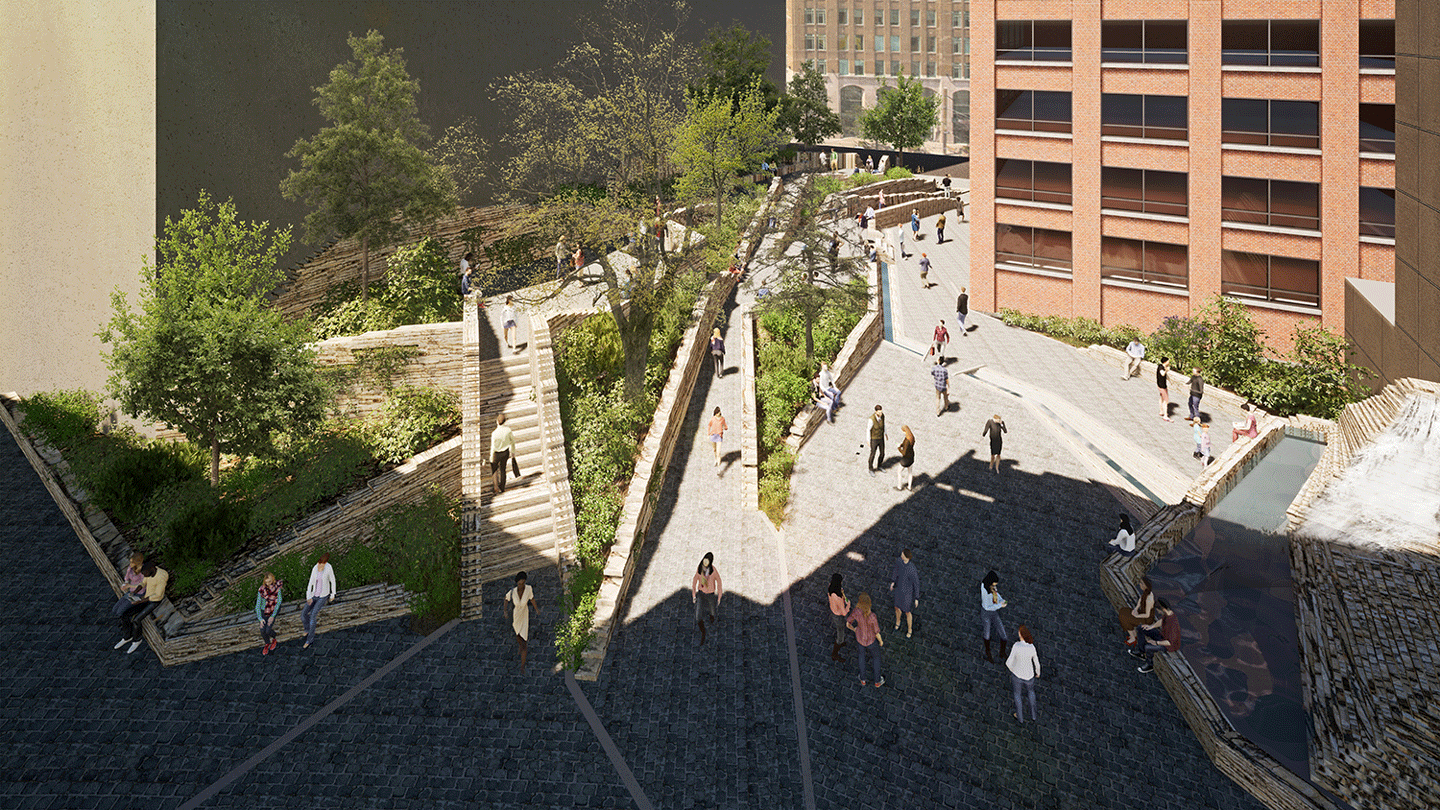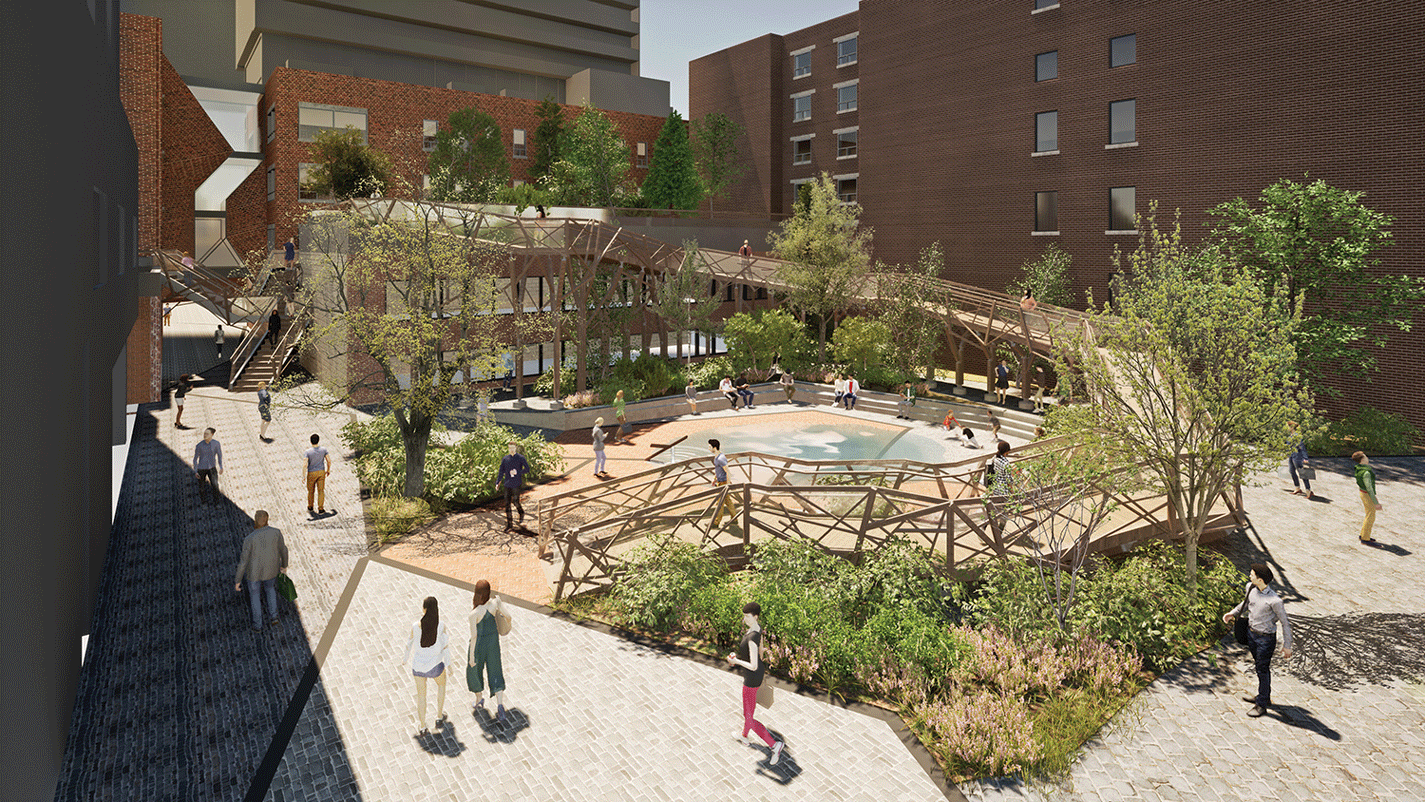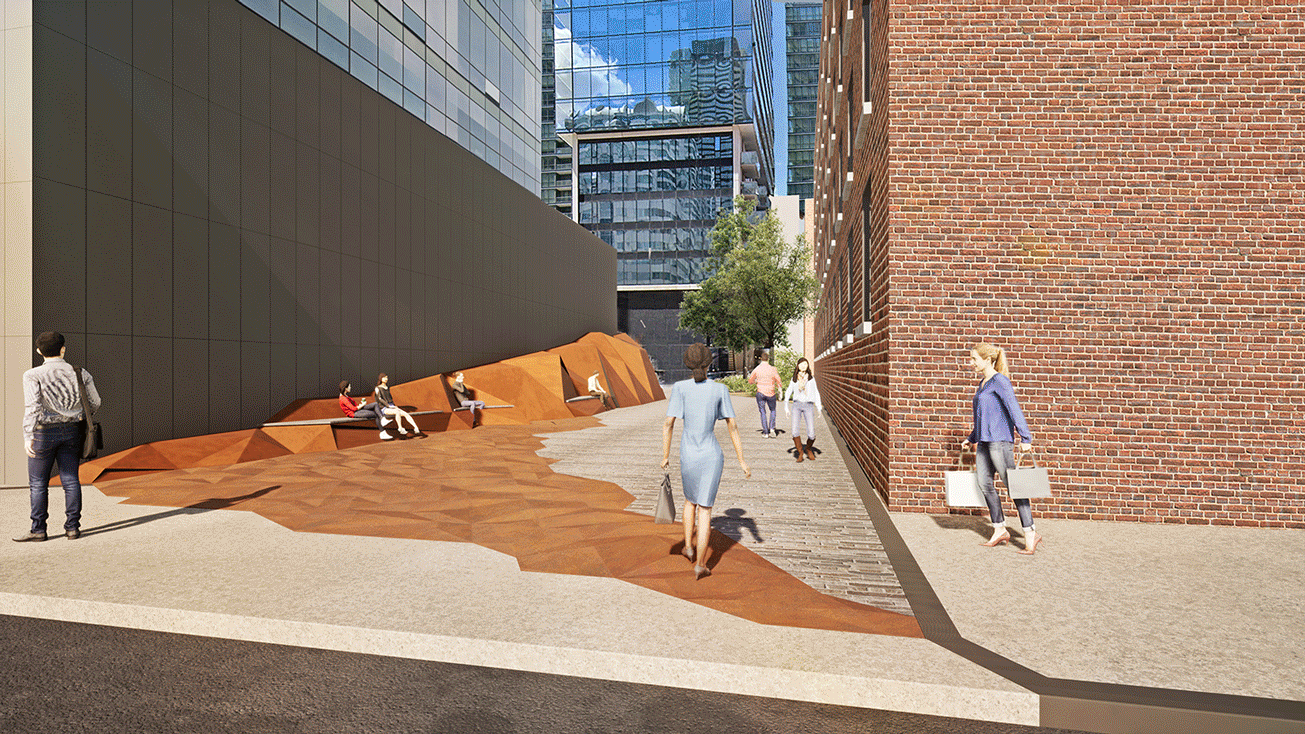MASTER OF ARCHITECTURE
Tess Macpherson— RAIC Honour Roll
![]()
Tess Macpherson— RAIC Honour Roll
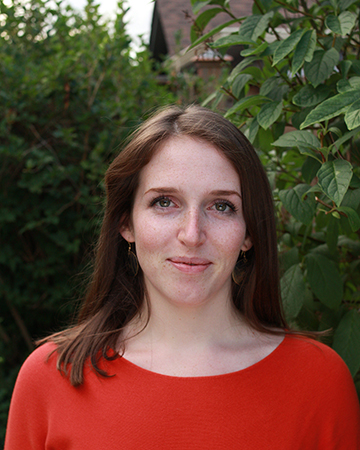
About the Award
For those students who have achieved high academic standing in the top 10% of their graduating class.
The experience of time is relative and can only be perceived through changes in the physical world around us. Throughout history cities emerged as centres of increasing speed. Over the course of the 20th century, the relationship between people and the speed of the city has transitioned from a state of shock and fascination to a crisis of disassociation and numbness. Technological advancements and globalization accelerated the experience of time to the point of surpassing the need for spatialization. The COVID-19 pandemic has made physical space feel even more irrelevant. People are becoming increasingly disassociated from the physical realm of the city. Paradoxically, the COVID-19 lockdown has also made people more conscious of space, particularly spaces in the city that are no longer livable when people are confined to them. Just as cities were being re-imagined in response to industrialization, and post de-industrialization, the way we live in our cities is once again being challenged.
One cannot appreciate slowness without an awareness of speed, and vice versa. This is because the experience of time is relative. Situating moments of slowness within the speed of the city allows one to become more aware of both. Slow city is proposed in this thesis, which emerges amid the speed of the city, creating breaks in the urban fabric. These breaks become moments of pause and reveal, where one can drift through alternative routes within the city, immersed in where one is rather than where one is going. Slow strategies are explored through material expression, paving, vegetation, water and seating to slow down one’s experience. By increasing texture, one’s senses become more engaged, which in turn slows down one’s movement. In this thesis, slowness becomes a form of resistance to speed in the city.
Toronto has a history that is like many post-industrial cities. It has experienced the acceleration of speed that David Harvey described as the time-space compression of the 20th century. Today, Toronto has emerged into what Richard Florida calls a superstar city techhub, which is consumed with speed. Toronto is the focus of exploration here to determine how slowness can be implemented in the city. By constructing moments of slowness, this thesis argues that the future of cities will be more engaging and livable.
For those students who have achieved high academic standing in the top 10% of their graduating class.
The experience of time is relative and can only be perceived through changes in the physical world around us. Throughout history cities emerged as centres of increasing speed. Over the course of the 20th century, the relationship between people and the speed of the city has transitioned from a state of shock and fascination to a crisis of disassociation and numbness. Technological advancements and globalization accelerated the experience of time to the point of surpassing the need for spatialization. The COVID-19 pandemic has made physical space feel even more irrelevant. People are becoming increasingly disassociated from the physical realm of the city. Paradoxically, the COVID-19 lockdown has also made people more conscious of space, particularly spaces in the city that are no longer livable when people are confined to them. Just as cities were being re-imagined in response to industrialization, and post de-industrialization, the way we live in our cities is once again being challenged.
One cannot appreciate slowness without an awareness of speed, and vice versa. This is because the experience of time is relative. Situating moments of slowness within the speed of the city allows one to become more aware of both. Slow city is proposed in this thesis, which emerges amid the speed of the city, creating breaks in the urban fabric. These breaks become moments of pause and reveal, where one can drift through alternative routes within the city, immersed in where one is rather than where one is going. Slow strategies are explored through material expression, paving, vegetation, water and seating to slow down one’s experience. By increasing texture, one’s senses become more engaged, which in turn slows down one’s movement. In this thesis, slowness becomes a form of resistance to speed in the city.
Toronto has a history that is like many post-industrial cities. It has experienced the acceleration of speed that David Harvey described as the time-space compression of the 20th century. Today, Toronto has emerged into what Richard Florida calls a superstar city techhub, which is consumed with speed. Toronto is the focus of exploration here to determine how slowness can be implemented in the city. By constructing moments of slowness, this thesis argues that the future of cities will be more engaging and livable.
